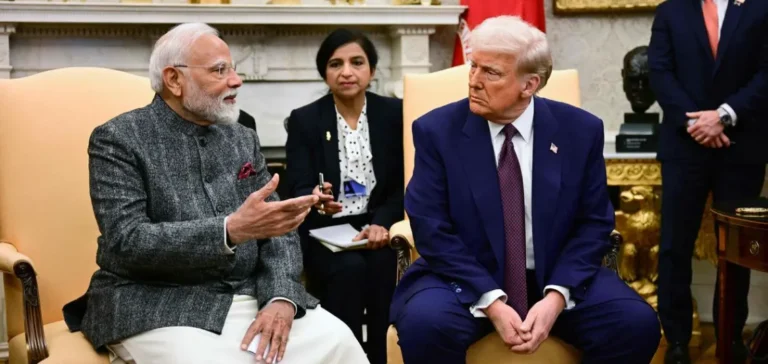The United States has offered support to India to help reduce its purchases of oil from Russia, suggesting a diversification of supply sources, including American crude. Energy Secretary Chris Wright stated that this offer was part of a broader diplomatic strategy: “America has oil to sell, but so does everybody else. We want to end the war and grow our relations with India.”
However, this outreach comes in a context of escalating trade tensions. On August 27, the United States doubled tariffs on several Indian products to 50%, citing New Delhi’s continued energy purchases from Russia.
An energy strategy entangled with sanctions
Washington is also urging Europe to accelerate its reduction of energy dependence on Russia. Chris Wright stated that a faster timeline would be preferable to increase pressure on the Kremlin. He specifically cited liquefied natural gas (LNG) as a strategic tool to be redirected from the US or other alternative sources.
Yet behind this rhetoric, contradictions are piling up. While the US claims it does not lack buyers for its LNG, it nevertheless calls for a rapid reorganisation of European flows to curb Russian energy revenues. The use of tariff sanctions while promoting exports raises questions about the coherence of US policy.
Energy trade between Washington and New Delhi under strain
In 2025, Indian imports of US crude averaged 312,000 barrels per day (b/d), compared to 219,000 b/d in 2024, according to S&P Global Commodities at Sea. These volumes peaked at 469,000 b/d in February and August 2025. Despite this growth, the new trade barriers imposed by Washington may undermine the momentum of bilateral trade.
As early as February, both governments had announced an energy agreement intended to facilitate these exchanges. The punitive measures adopted since then cast doubt on the US’s willingness to build a stable energy relationship with India.
Impact on the American oil sector
Meanwhile, on September 22, Chris Wright announced the launch of a study by the National Petroleum Council to improve infrastructure and permitting procedures for oil and gas. The objective is to better coordinate the gas and electric sectors to support domestic production.
However, according to the latest survey by the Federal Reserve Bank of Dallas, shale oil investment decisions are declining. Companies report reducing drilling programmes and suspending some operations, citing in particular the effects of tariffs on aluminium and steel—two critical materials for energy equipment. One executive confirmed their company had gone from drilling ten wells to five before halting all projects.






















